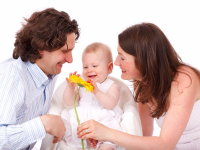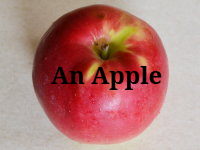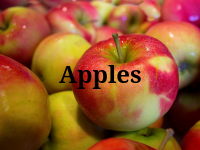Lesson 3 - Nouns
Introduction
Welcome to lesson 3 of the Learn English Level 2 course. In this lesson, you'll learn about nouns in the English language as well as the definite and indefinite articles. You'll also learn some common English words for people. The lesson starts with a short conversation between two friends.
Advertisement
Conversations

English
Cathy and Sarah are studying at the university library.
Cathy: I have two books to read for my course.
Sarah: Are the books interesting?
Cathy: I like one of the books.
Sarah: Let me read the book when you are done.
Cathy: Sure. How many courses do you have?
Sarah: I have five courses, but one course only lasts for four weeks.
People
 baby
baby
|
|
 boy
boy
|
|
 brother
brother
|
|
 child
child
|
|
 children
children
|
|
 daughter
daughter
|
|
 father
father
|
|
 girl
girl
|
|
 man
man
|
|
 men
men
|
|
 mother
mother
|
|
 people
people
|
|
 person
person
|
|
 sister
sister
|
|
 son
son
|
|
 woman
woman
|
|
 women
women
|

Grammar
Nouns
Nouns are words that refer to people, places, things and concepts. In English nouns can refer to one item (singular) or more than one item (plural). The plural of nouns is formed several different ways.
- Add an s to the end of the noun. This is the most common.
- Add es to nouns ending in s, x, z, ch, or sh.
- Nouns that end in y, preceded by a consonant, drop the y and add ies
- Some nouns that end in f or fe change the f to v as well as adding an s. (half - halves, knife - knives, leaf - leaves, life - lives, loaf - loaves, self - selves, shelf - shelves, thief - thieves, wolf - wolves, scarf - scarves)
- Change the spelling and pronunciation of the noun. (child - children, foot - feet, mouse - mice, man - men, goose - geese)
- A few nouns are the same for both the singular and plural form. (fish, deer, series, species)
Examples
| Singular | Plural | |
|---|---|---|
| boat | boats | |
| book | books | |
| course | courses | |
| match | matches | |
| valley | valleys | |
| sky | skies | |
| child | children | |
| man | men | |
| woman | women | |
| mouse | mice | |
| foot | feet | |
| tooth | teeth | |
| fish | fish |






Definite and Indefinite Articles
Definite Article
The word the is one of the most common words in the English language. It is called the definite article and is used before a noun to indicate that the noun indicates a specific object or concept.
Indefinite Article
The word an is also very common in the English language. It is called the indefinite article and is used before a noun to indicate the noun is not referring to a specific object or concept, but that category of object in general. When the following word starts with a consonant, the n is dropped. The indefinite article is not used with plural nouns.
Examples
| the boat | |
| the boats | |
| a boat | |
| boats | |
| an apple | |
| apples |


Reading English
| Hi. My name is Paul. I am fifteen years old. I have a brother. His name is Mark, and he is sixteen. I also have a sister. Her name is Sarah, and she is fourteen. My family lives in a house in San Francisco. Our house has four bedrooms and three bathrooms. There are two apple trees and a small garden in our back yard. |
Practice
Play the audio, then write the English word or sentence that you hear. Press the Check button to see if your answers are correct.

|
|

|
|

|
|

|
|

|
Write the plural form of each of the following words.
| baby | |
| cat | |
| house | |
| son | |
| boat |
Quiz
Here is an online quiz to help you learn the English vocabulary introduced in this lesson.

